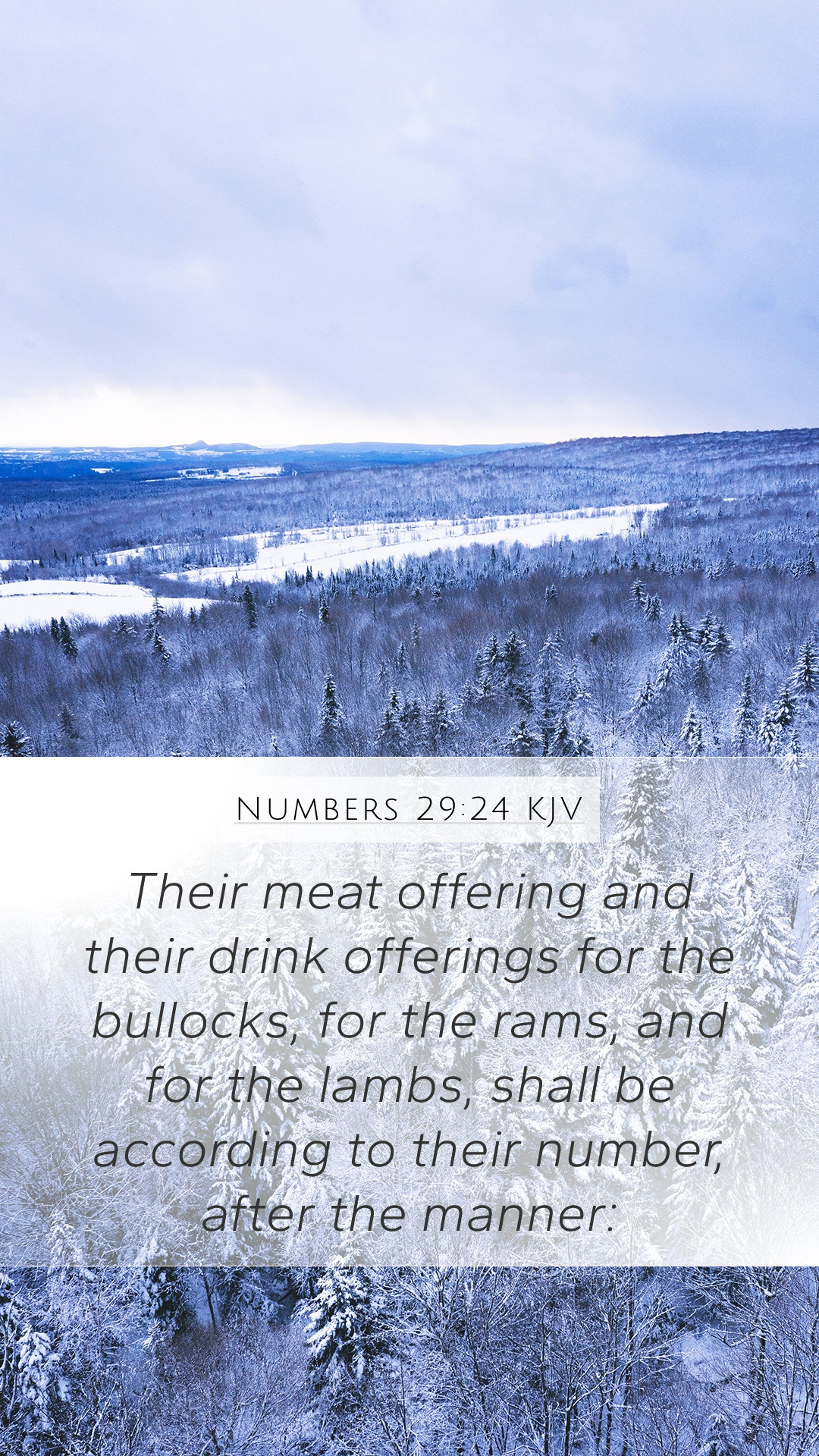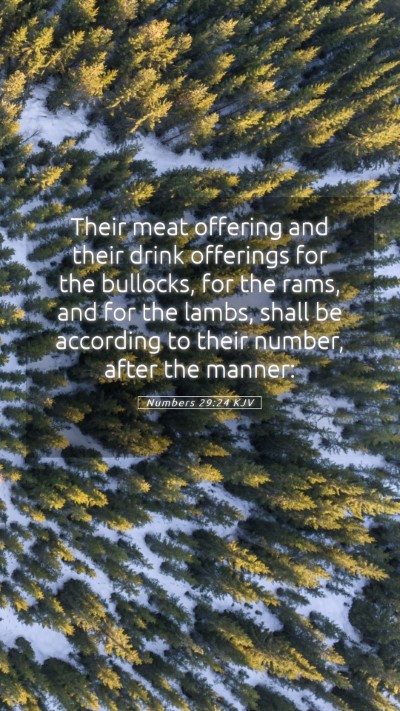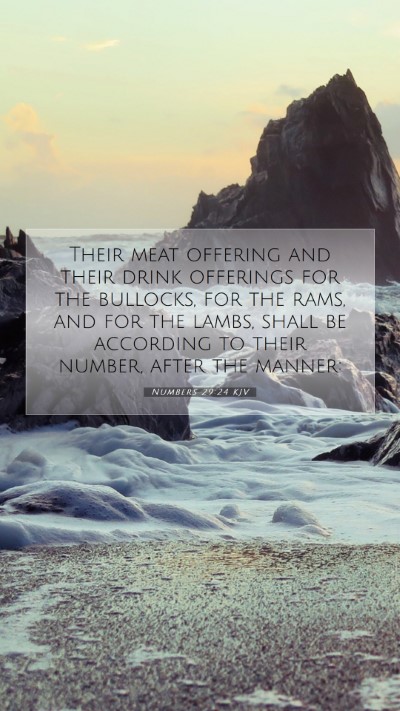Bible Verse Meaning: Numbers 29:24
In Numbers 29:24, the Scripture reads: "And their meat offering shall be of flour mingled with oil, and of fat of the lambs." This verse is part of a broader context regarding the offerings and sacrifices that the Israelites were commanded to present to God during the Festival of Tabernacles. The commentary on this verse highlights several key layers of understanding.
Contextual Overview
This passage falls within God's instructions to Moses for the Israelites concerning their annual feasts. The reference to the meat offering signifies the importance of dedication, sacrifice, and gratitude toward God.
Insights from Public Domain Commentaries
Matthew Henry's Commentary
Matthew Henry emphasizes that the offerings represent the people's acknowledgment of God’s sovereignty and provision. The flour mingled with oil symbolizes the necessary elements of worship where both "flour," indicating labor and effort, and "oil," representing the Holy Spirit, must combine for an acceptable sacrifice. This illustrates the importance of not just what is offered, but the manner of offering.
Albert Barnes' Notes
Albert Barnes clarifies that the offerings outlined in this chapter, including the one in Numbers 29:24, serve as a reminder of the Israelites’ covenant with God. Each element of the offering carries significance; for instance, the fat of the lambs is considered to be the best part, indicating that offerings to God should come from the best of what one has. This highlights the principle of giving not just out of abundance but out of reverence and respect for God.
Adam Clarke's Commentary
Adam Clarke notes that meat offerings, particularly those made during significant festivals, were meant to be a cheerful act of worship. Clarke underlines that these offerings also had a communal aspect, where the act of presenting sacrifices was a shared experience among the people. He points out that it was essential for the Israelites to engage in these practices to maintain their relationship with God and ensure His continued favor.
Bible Study Insights
Understanding Numbers 29:24 requires examining its connections to core themes in Scripture, such as sacrifice, worship, and community. Here are some bible study insights that enrich our understanding of this verse:
- Meaning of Offerings: Offerings are not merely ritualistic acts but are expressions of the heart's devotion to God.
- Symbolism in Sacrifice: The elements mentioned (flour, oil, fat) symbolize various aspects of life and faith, including labor, divine help, and the best of one's resources.
- Application Today: Today, believers can reflect on what they offer to God in terms of time, talent, and treasure, ensuring that their contributions reflect their love and commitment.
In-Depth Bible Verse Analysis
In conducting an in-depth analysis of Numbers 29:24, it is crucial to view it through the lens of biblical exegesis:
- Historical Context: The Israelites were in a transitional phase, moving toward possessing the Promised Land while needing to establish a distinct identity centered on worship.
- Cultural Significance: Understanding ancient Near Eastern customs of sacrifice aids in appreciating why God instituted these offerings.
Application of Numbers 29:24
For modern readers, applying the teachings of this verse can involve considering how we express gratitude and commitment in our lives. Each offering made during the feasts served to affirm the community’s relationship with God, challenging us today to consider our communal and individual acts of worship.
Related Bible Cross References
- Exodus 29:41: Discusses the offerings that are to be made to the Lord.
- Leviticus 2:1-16: Provides instructions for grain offerings.
- Deuteronomy 16:16-17: Reflects on the significance of the three major feasts and offerings made during these times.


